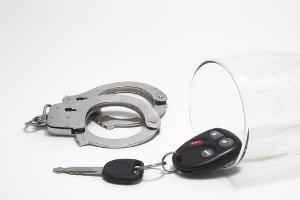Operating Under the Influence: Understanding OUI Laws
 For decades, interest groups and awareness campaigns have sought to educate the public about the dangers of driving under the influence (DUI). Photos of mangled vehicles, staggering statistics, and tragic stories of DUI fatalities have certainly succeeded to a degree, as virtually nobody would claim that driving drunk is a safe choice. Sometimes, however, there seems to be a significant divide between what an individual sees as drunk driving and what the law says. Operating under the influence, or OUI, as it is known in Connecticut, is a serious charge and one that can have long-lasting effects on those who are convicted.
For decades, interest groups and awareness campaigns have sought to educate the public about the dangers of driving under the influence (DUI). Photos of mangled vehicles, staggering statistics, and tragic stories of DUI fatalities have certainly succeeded to a degree, as virtually nobody would claim that driving drunk is a safe choice. Sometimes, however, there seems to be a significant divide between what an individual sees as drunk driving and what the law says. Operating under the influence, or OUI, as it is known in Connecticut, is a serious charge and one that can have long-lasting effects on those who are convicted.
OUI Laws in Connecticut
There are two sections of the Connecticut General Statutes that form the basis of OUI or DUI laws in the state. The first applicable section establishes the legal definition of operating under the influence as the operation of “a motor vehicle (1) while under the influence of intoxicating liquor or any drug or both, or (2) while such a person has an elevated blood alcohol content.” A driver may not operate a private vehicle with a blood alcohol content (BAC) of .08 percent or higher. For a commercial vehicle, elevated BAC begins at .04 percent.
The second section of the law pertaining to OUI is often referred to as the “implied consent law,” as it specifies that by operating a motor vehicle, a driver is assumed to have granted his or her consent to chemical testing for intoxicating substances. These tests include breath, blood, and urine analyses to establish a driver’s BAC. A driver stopped on suspicion of DUI may refuse to comply with such testing, but will automatically be subject to a 45-day license suspension by the Connecticut Department of Motor Vehicles, in addition to any criminal penalties imposed by a subsequent OUI conviction.
Conviction and Penalties
It is extremely important to realize that OUI convictions are not based solely on the results of BAC testing. In fact, it is entirely possible for a driver to be convicted without chemical testing, or in some cases, without exceeding the legal BAC limit. Other field sobriety tests, speech patterns, or erratic behavior may offer proof that a driver was impaired or otherwise under the influence, and such evidence may be sufficient for a conviction.
Even a first conviction on OUI charges carries serious criminal penalties. A first-time offender faces a mandatory minimum sentence of either imprisonment for 48 hours or a suspended prison sentence with probation requiring at least 100 hours of community service. Depending on the circumstances, the offender may recieve a sentence of up to six months in prison and fines ranging from $500 to $1,000. His or her driver’s license will also be suspended for 45 days, which may be concurrent with a suspension related to refusing or failing a chemical test, and the use of ignition interlock device will be required for one year.
The mandatory minimum sentence for a second offense increases to 120 day in prison with 100 hours of community service, and the court may impose imprisonment of up to two years. A repeat offender also faces fines of up to $4,000. Driving privileges will again be suspended, and the ignition interlock device will be required for three years. Any conviction beyond a second offense will result in a mandatory one-year prison term and 100 hours of community service, with a maximum of three years in prison, up to $8,000 in fines, and revocation of the offender’s driver’s license.
The law does provide some level of relief, however, particularly for first offenders. Diversionary educational programs, such as the Pretrial Alcohol Education Program, are often available that can result in the dismissal of the charges following successful completion of the program. Such programs are focused on preventing future problems rather than the harsh punishment of a single poor decision. A commercial driver's license (CDL) holder charged with OUI, however, is not eligible for diversionary programs, even if his or her arrest was related to operating a private vehicle.
Legal Help for Your OUI Case
If you are facing charges of operating under the influence, you need a lawyer who understands the Connecticut legal system. Contact an experienced Hartford DUI/OUI attorney at the Woolf & Ross Law Firm, LLC to schedule your initial consultation. We will review your case, help you explore your options under the law, and work with you to minimize the impact on your future. Call 860-290-8690 for an appointment today.






